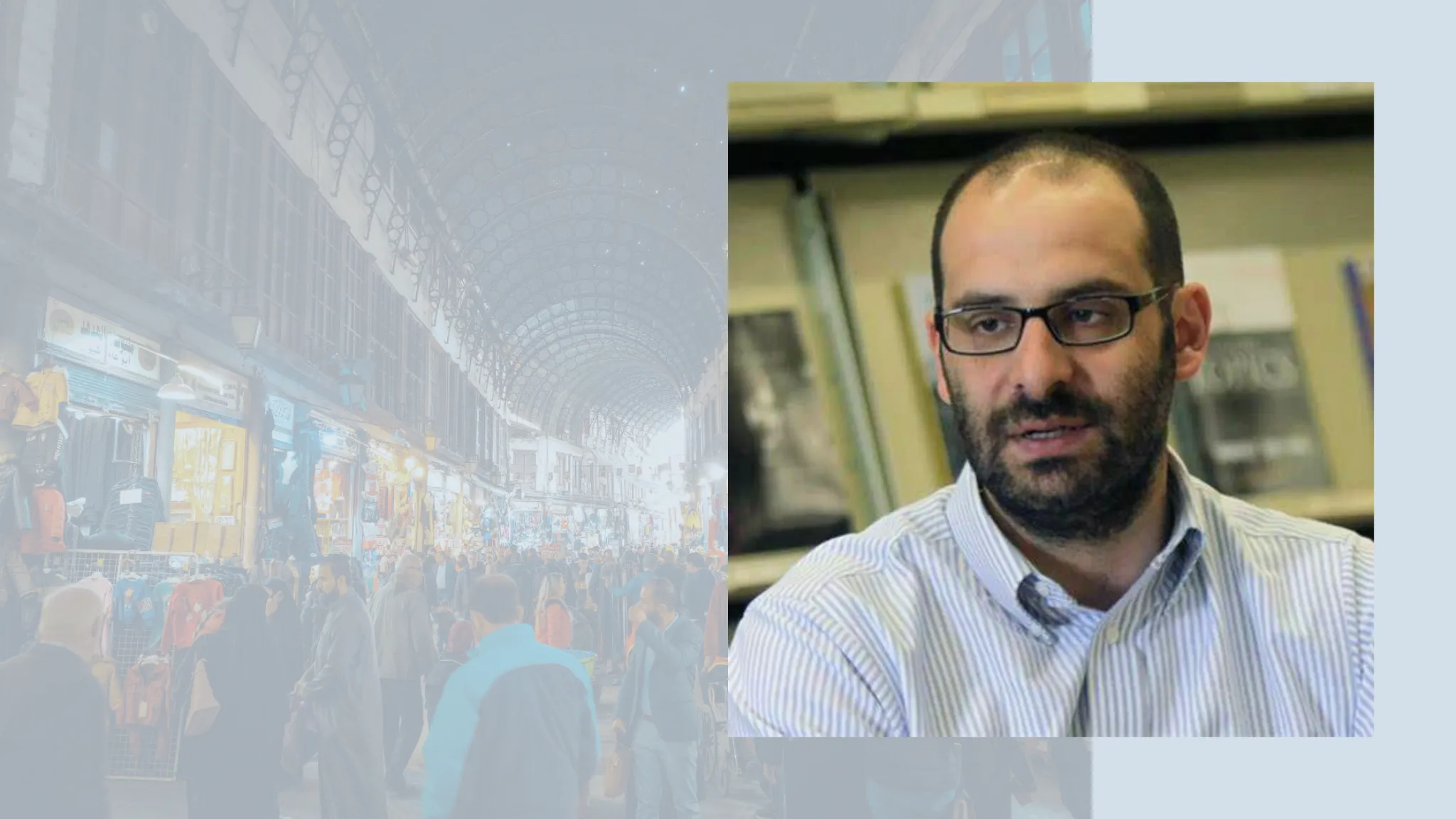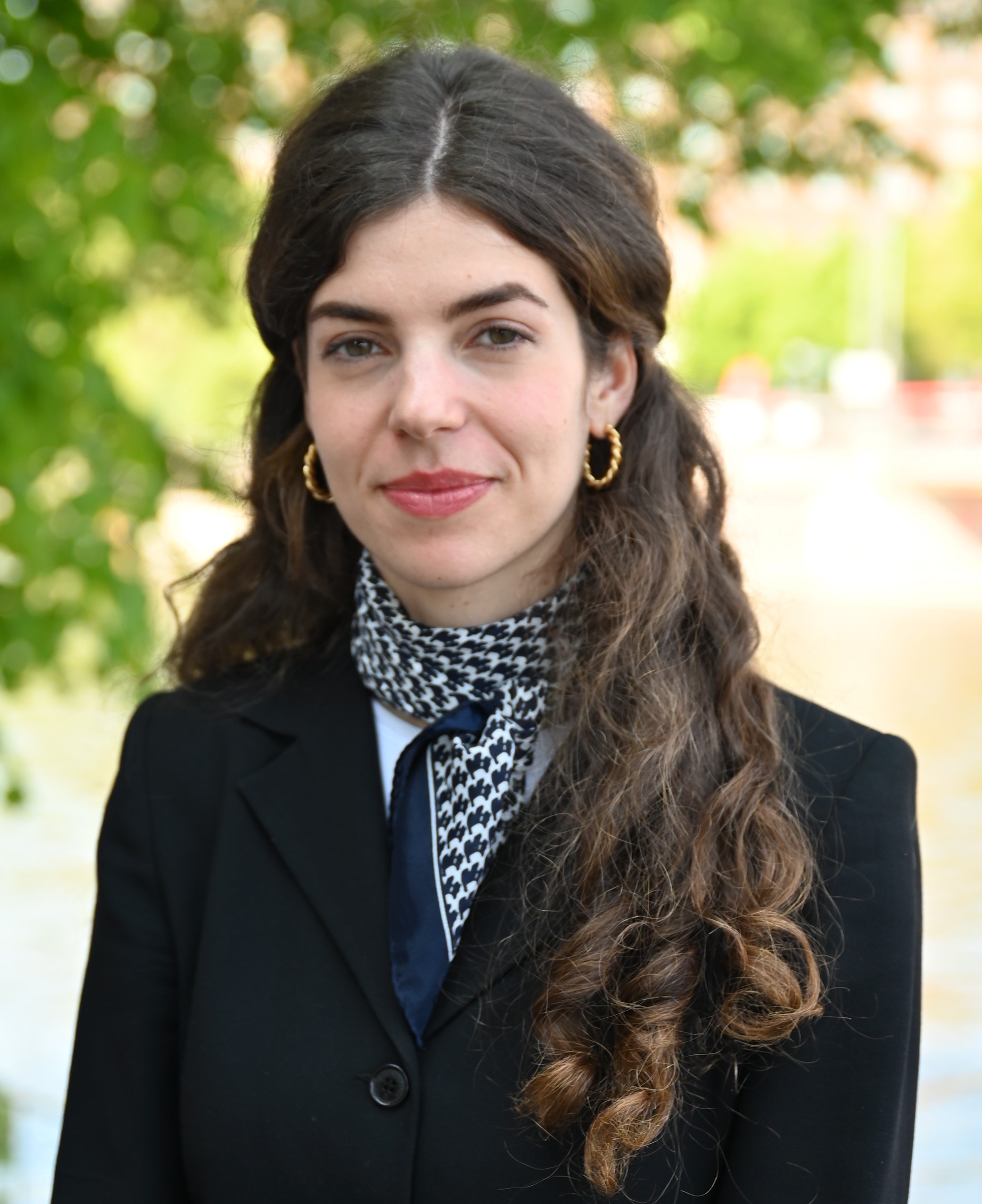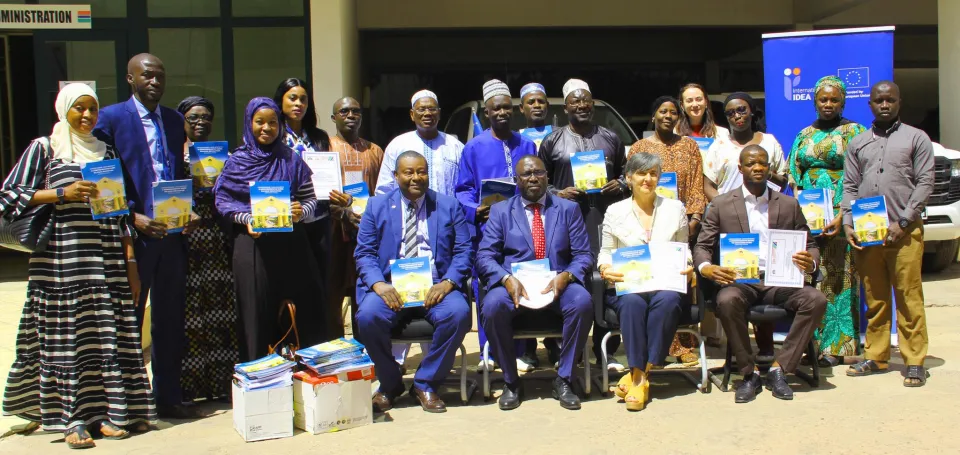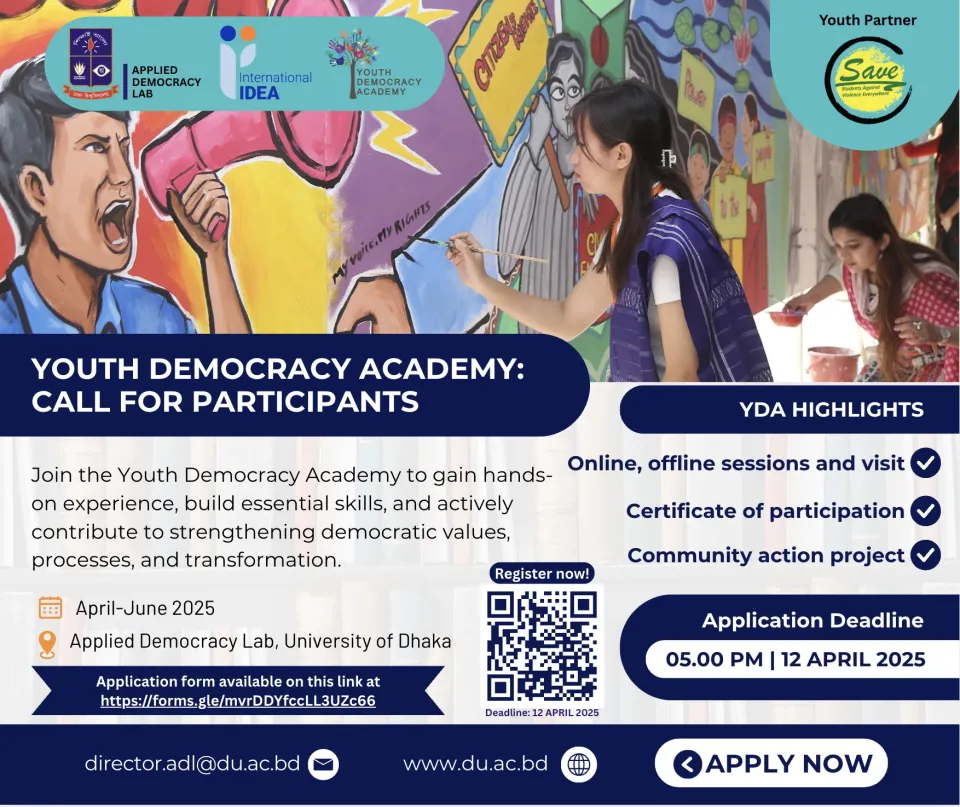Q&A: Omar S. Dahi on the future of Syria after the fall of Assad

This interview has been edited for length and clarity.
On 8 December 2024, the government of President Bashar al-Assad was overthrown by armed opposition forces, marking the end of 54 years of Assad family rule. After more than 13 years of civil war, the conflict had appeared to be frozen since a ceasefire in 2020 halted the fighting. However, the sudden offensive, led by Hayat Tahrir al-Sham (HTS) and Turkish-backed factions, quickly seized key cities such as Aleppo, Homs, and Damascus. Assad fled to Moscow, and the Baath Party suspended its activities. Celebrations erupted across Syria and the diaspora, beginning a new phase for the country.
To better understand the current situation and what lies ahead for Syria, I spoke with Omar S. Dahi, economics professor at Hampshire College and founding director of Security in Context, a research network on peace, conflict, and international affairs. He also serves as an associate editor at the Review of Social Economy and Jadaliyya and is a founding member of the Beirut School of Critical Security Studies within the Arab Council for the Social Sciences (ACSS). Dahi has also been a lead expert for the United Nations Economic and Social Commission of West Asia’s (ESCWA) National Agenda for the Future of Syria program.
Since the fall of the al-Assad regime, events have progressed rapidly. Where are we today? Who are Syria's new rulers, what is their plan for the transition, and how have they been received by Syrian society?
From 8 December 2024 until 29-30 January Syria was governed by a caretaker administration led by Ahmed Al-Sharaa and Hayat Tahrir al-Sham (HTS), an armed group that previously ruled over the governorate of Idlib in northwest Syria. HTS, which split from al-Nusra Front and al-Qaeda, and consolidated a number of other armed groups, claims its ideology has evolved and showed signs of pragmatism as rulers of Idlib. They had defined their politics and goals as being within the Syrian national liberation anti-Asad framework rather than international Jihad.
On 29 January, there was a highly anticipated meeting between all the major armed groups who apparently agreed to dissolve themselves into a Syrian National Army and appoint Ahmad Al-Sharaa as President of the Transitional Period. On 30 January, Al-Sharaa made a brief public statement to the Syrian people, his first official address since the collapse of the regime. In the statement he accepted appointment as President of Syria during the Transitional Period. Both meetings have also declared a dissolution of all political parties, the Syrian Parliament, and the declaration of an imminent small legislative council. He also promised several other steps to be taken soon, including a Constitutional Declaration to legally guide the transitional phase, an inclusive National Dialogue, implementing what he referred to as establishing civil peace, implementing a “real” transitional justice process, defending Syrian sovereignty and reclaiming all Syrian land, improving livelihoods, and reforming institutions to weed out corruption and finally free and fair elections. Contrary to the closed meeting with armed groups the previous day, the speech was better received by the public.
So far, the de facto rulers have been navigating a delicate bargaining process with unaffiliated armed groups, various sectors of Syrian society, and international stakeholders. While most members of Syrian society may not be instinctively opposed to them, there is apprehension about how they will rule, as questions about their plans and ideology remain. Though Al-Sharaa himself says all the right things, there is a particular skepticism about their power consolidation and lack of clear plans, even with the recent announcements.
HTS had previously appointed a caretaker government and gave itself a deadline of 1 March 2025, though apparently, they felt sufficiently confident in moving forward both in terms of acquiescence of major domestic forces at least for the moment and also having secured sufficient recognition externally through the many Arab, Turkish, EU and US official visits. Ahmad al-Sharaa, had previously stated that the transitional process could take up to four years. However, despite the announcements on 30 January there is no clear blueprint yet, and there are some mixed signs. On the one hand, the de facto government has signaled that they do not intend to monopolize power and want an inclusive, meaningful transition. On the other hand, they have also made some decisions that could be interpreted as consolidating power, such as exclusively appointing figures from HTS and Idlib to major posts in the public sector and administration. At the same time there are credible allegations of extra-judicial assassinations and attacks in various areas such as in and around Homs and a climate of fear emerging in those areas. There is also a lot of disinformation both in terms of attacks which did not really take place, or false attribution to attacks that did, so we have to be careful. What is needed however is clear and unequivocal condemnation and investigation by the political leadership of these emerging trends. The de facto government has stated that there should be no revenge, no destruction, and that there should be preservation of state institutions. But here again the issue is matching public declarations-which are undoubtedly important in and of themselves, but they need to be met with concrete actions.
However, we have to remember that we’re starting from a very low baseline. Despite challenges, this remains a relatively ideal a transition as possible given the circumstances. Considering the war's devastation, polarization, and fault lines, I agree with those who are relatively optimistic—in as much as it could have been much worse.
Even if a more ideal government were in place, the challenges would still be immense. Syria’s situation is defined by penetrated sovereignty, with multiple external influences. So, we need to assess HTS’s actions not against what we hope for, but against the realities on the ground.
While the fall of the regime could be described as a revolutionary event, HTS has also inherited the former regime’s institutions and state employees. How might this institutional heritage impact future democratic reform?
The army and, even more so, the security sector in particular require deep reform to disinherit the legacy of abuse and impunity. In contrast, other areas of the public sector such as economic and social bureaucracies, agricultural and manufacturing bodies, or the civil service, require minimal change at this stage, as it is important to preserve much of the developmental and institutional heritage. It would be a mistake to dismantle these institutions at this time, especially when a relatively strong public sector is needed to deliver essential goods and services. The transitional period in my opinion is not a time for major increases or cuts in the public sector since all changes, including ones being contemplated, have deep distributional consequences and can significantly affect inequality and basic needs.
Syria does not have a "deep state" in the way it is understood elsewhere in the region. This is partly due to the extreme centralization of power, which demobilized and marginalized any centers of influence that could pose a challenge to the presidency and its inner circle. Paradoxically, this may make the reform process easier. This is not to say there will not be actors who try to spoil the transition, but not in the manner of a deep state.
How much of the discourse around inclusion is driven internally? And what would meaningful inclusion look like in Syria in the current context?
Inclusivity means different things to different people. Of major concern is the tendency of reducing Syria to a collection of tribes and sects, each requiring political representation. This would lead to a Lebanon or Iraq-style sectarian division of political power, which I believe would be disastrous for Syria as it would be building towards a non-democratic, sectarian, and weak state, which is a recipe for permanent conflict. Stakeholders, domestic or international, should be warned against going down that route. Instead, we need to be building towards programmatic political parties and ensuring equality based on citizenship.
Inclusivity must strike a balance so that no major segment of Syrian society feels neglected or that the transition comes at its expense. Aside from the top echelon of the former regime, warlords, and war profiteers who clearly committed mass human rights abuses, no group should feel targeted. There must therefore be an aspect of inclusivity that acknowledges this balance and addresses the fears and concerns different sects and ethnic groups might have.
Inclusivity should also go much beyond that. For instance, we must consider the millions of refugees in Turkey, Lebanon, Syria, and elsewhere. Additionally, we need to think about the broader civil society groups that have emerged over these past years, and which can represent those who are politically unorganized. We also need to think about workers, laborers, farmers and peasants’ organizations. In the past, these groups were controlled by the Baath party, but now there is a chance for independent unions, syndicates and organizations. We should not have a transition process that comes at the expense of the poor and marginalized sectors of society.
A slow transition makes the most sense if it is transparent and inclusive. Previous experiences in post-conflict situations show that rushing to elections is a mistake because it creates immediate winners and losers. However, there must be an inclusive and meaningful process during the transition that lays the foundation for constitutional reform, eventually then leading to future elections. If absolutely necessary, local elections could be a first step to help manage affairs, but certainly not this year.
What are the key challenges, tensions and trends you observe that could impact the country's future democratic trajectory? Which social and political forces do you expect to play a central role in shaping this future?
Externally, the primary challenge is the economic sanctions, which need to be lifted immediately as they are a significant threat to the entire society. Given the dire economic need, the risk of conflict relapse is high without economic revival. Lifting the broad-based sanctions imposed by the EU and US is the means to achieve that.
Second, in terms of external forces, Israel is also a significant threat to Syrian society. Israel has already invaded further into Syria, trying to further consolidate its hold on the occupied Golan Heights and occupying new territories. Israel’s stated goal is to keep Syria weak and divided. What is worse is that this has happened without any condemnation from Western governments. The Syrian government is weak and cannot respond to Israel right now, but Western governments have been silent on the issue.
Domestically, there are significant economic and social challenges. There’s the refugee problem, the destroyed infrastructure, and the fault lines of the conflict. However, the major issue is the future of northeastern Syria, which is currently under the control of the Syrian Democratic Forces. We should all advocate for a meaningful compromise that allows the political movements in that region significant administrative autonomy, and guarantees the cultural, political, and civil rights of Kurds in Syria. We should oppose any military solution to this, whether by Turkey or anyone else, because that would stain the transition and create new fault lines that could spill over into other regions. Other regions may feel that military action is the only way to preserve their rights, so any compromise made must be national in scope.
How do you see transitional justice being established, and what reconciliation mechanisms could be put in place to ensure a smooth transition?
Although some key figures from the former regime have been arrested, a transitional justice process has not been established. The current government has stated that they do not want to foster a mentality of revenge, emphasizing that they do not view sectors of Syrian society as enemies.
Transitional justice also requires truth, which involves understanding what happened. In this regard, Syria's conflict is one of the most thoroughly documented, with United Nations fact-finding missions showing that the overwhelming majority of war crimes and human rights violations were committed by the government. Still, it is crucial to recognize the violations committed by opposition groups as well. This reckoning must be specific to Syria, considering the delicate nature of the current moment and aligning with the ongoing transitional government process.
The sudden collapse of the regime, along with the complete disintegration of the army and security services, creates an opportunity for a meaningful accounting of what happened. In contrast to other transitions, such as those in Latin America, where the military did not fully undergo reform and often destroyed evidence or withheld documents, the total collapse of the previous regime offers a unique opening for truth and accountability.




